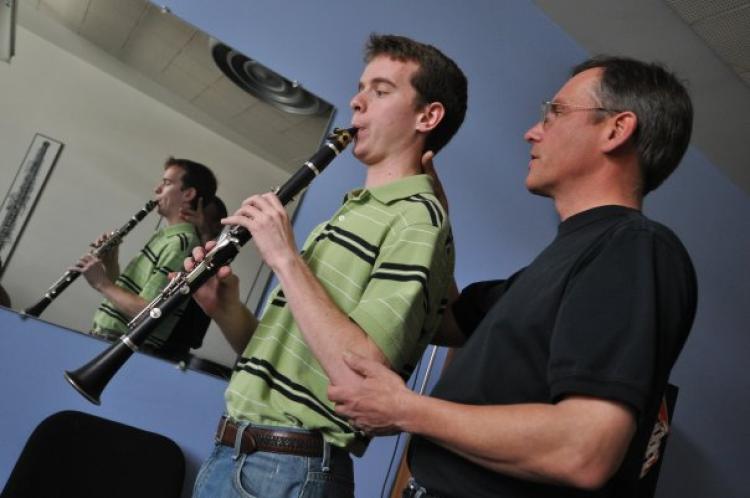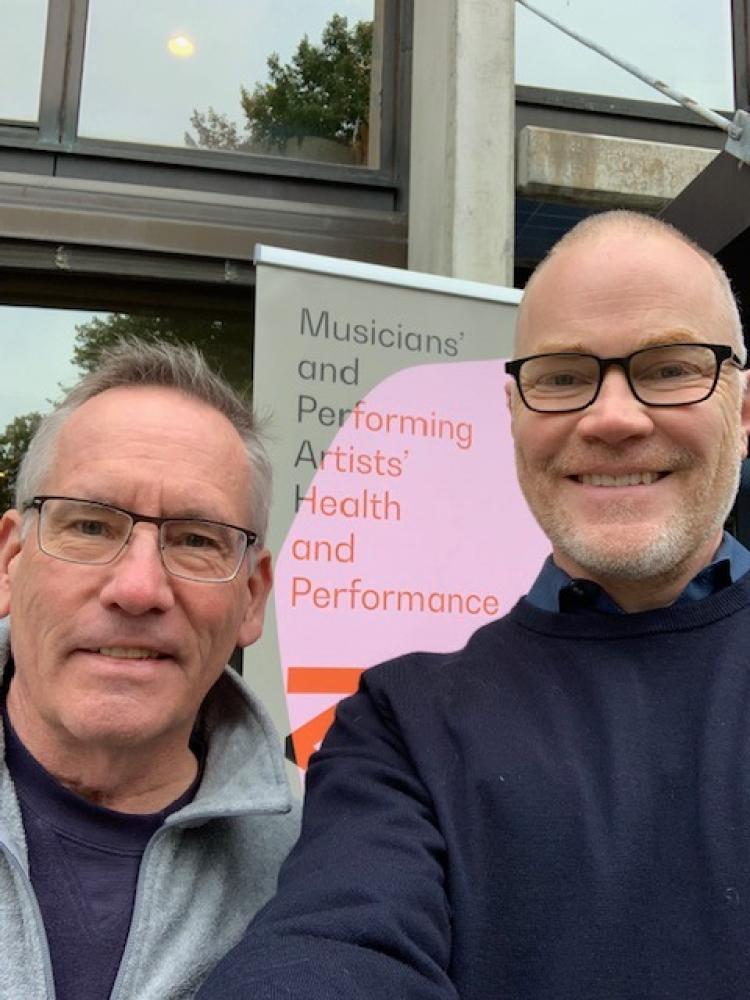Musicians’ Wellness Program promotes peak performance, mental health
If you peek into one of Professor James Brody’s classes, you’d likely observe students wandering around a mirrored room, lying flat on the floor in silence or performing tai chi-like movements.
An onlooker may think they’ve entered a holistic yoga retreat. But for student musicians at CU Boulder, these exercises are an important investment in their health, careers and journey to representing the next generation of professionals in the field.
As part of the College of Music's approach to developing multiskilled, multifacted universal musicians, the Musicians' Wellness Program (MWP) provides students with a variety of strategies and information to help them achieve peak performance, prevent injury and cultivate robust mental health throughout their careers…and overall lives.
“We strive to build a strong physical and mental health foundation for our students so they can excel in their professional careers and pass that knowledge on to future generations,” said Brody, who founded the MWP in 2003 and continues to serve as the program’s director.

Professor James Brody instructs a student-musician on clarinet.
According to estimates, 80% of college-aged musicians have experienced stress, anxiety and/or depression in relation to their music creation, and as many as 90% of professional musicians suffer from playing-related pain or injuries due to improper form or posture due to misuse or overuse.
To curb those trends, the MWP offers free mental health services tailored to the needs of music students alongside optional courses that teach somatic practices to prevent injuries and optimize capability.
“We want students, especially those going into music education fields, to take this information, deliver it to their younger students and change the culture of the industry,” said Brody. “It's critically important that sound somatic information be provided to young musicians at the outset of their experience.”
Brody's core approach is in the realm of physical health, where he teaches his students the Alexander Technique—an alternative therapy commonly used among performing artists and athletes that aims to prevent injury by focusing on mind-body awareness.
Students learn by observing and adjusting their posture in the mirror, engaging in constructive rest and performing various exercises to enhance coordination and maximize potential, including some simplified tai chi movements.

Brody (left) and Tomatz (right) at the Norwegian Academy of Music's Musicians' and Performing Artists' Health and Performance conference last fall, where they co-presented on an integrative approach to improving performer wellness and success.
“The [Alexander] Technique is an effective tool that students can immediately employ on their journey to musical mastery,” said Brody. “When combined with a strong mental health support system, our program can provide students with the strategies they need to succeed in the field of their choice—whether it's music education, performance or even outside of the industry.”
The pursuit of music
The life of a student-musician is not for the faint of heart. Not only do many students cope with the daily pressure to perform in classes, recitals and auditions, they also may experience the anxiety that comes with an uncertain future in a highly competitive industry.
No one knows this better than Matt Tomatz, who trained as a trumpet player and educator before becoming a psychotherapist with CU’s Counseling and Psychiatric Services in 2008.
“The pursuit of music is dynamic, exciting and bold, but that path can also be very complicated,” he said. “Therapy can help students work through those pressures.”
As the embedded psychotherapist from CAPS to the College of Music, Tomatz offers workshops, individualized therapy and engages with staff and faculty to create a positive environment for students. He also leads group therapy sessions, called Developing the Whole Musician, which focus on managing performance anxiety, developing confidence and alleviating emotional blocks to success.
Around 160 students participate in MWP offerings each year, and more than 130 music students accessed Counseling and Psychiatric Services in the past academic year.
By leveraging the mental health resources the MWP provides, Tomatz says students can be more expressive in their musicianship, personal relationships and overall lives.
“Teaching student-musicians these mental health strategies before they enter the professional industry creates a foundation of strength, resilience and confidence,” said Tomatz.


